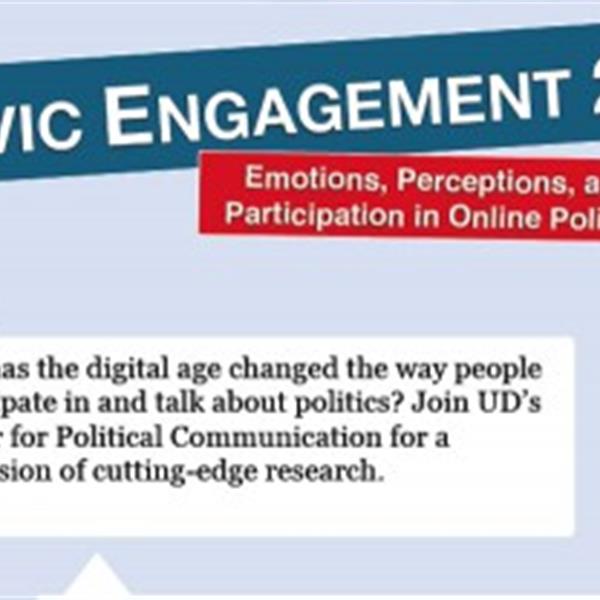
Political Communication and Engagement in the 21st Century
Lindsay Hoffman, Philip Edward Jones, Dannagal Goldthwaite Young, David C. Wilson, Julio Carrión,
Since the infancy of the Internet, scholars in Communication and Political Science have posited that the medium could mobilize and engage citizens. This project was driven by questions about how exactly new media technology affect individual attitudes toward politics as well as political behavior. We conducted a national online survey to answer two major research questions: To what extent do online emotional appeals by candidates lead people to engage with politics And are citizens’ motivations to engage in politics online driven by a desire to influence government (i.e., participate) as well as to communicate political ideas to others (i.e., communicate) To answer the first question, we showed respondents screenshots from a fictional candidate’s website where the candidate expressed either "angry", "hopeful", "anxious" or no emotions about the economy. Respondents then indicated how likely they were to participate on his behalf. We found that, contrary to concerns that using emotions in politics will agitate the least knowledgeable or engaged citizens and distort the democratic process, it is the most engaged and politically sophisticated voters whose decisions are swayed by these appeals. For the second question, we explored the ways in which these two behaviorswhich we delineate as participation and discussionare perceived by citizens in online versus offline contexts. We also examine how such perceptions can predict certain behaviors, such as "friending" a candidate on a social networking site and messaging with friends online about politics. It turns out that these behaviors are indeed perceived differently among American citizens, and that these perceptions can predict the likelihood of participating in online political forums.
